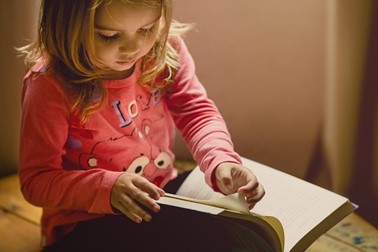Pioneer Play School is a child development and learning center. In the following article, Pioneer Play School discusses strategies to prepare preschoolers (and parents) for the back-to-school routine.
As the last few weeks of summer have already reared their fun (yet daunting) heads, parents and children across the nation are preparing to enter the school gates again or for the first time. While all students experience the heady concoction of nerves and excitement, it's a particularly stressful time for the youngest students, especially if they don't know what to expect.
Pioneer Play School notes however that parents hold the power to make the transition as stress-free as possible by following a few expert-given tips on how to prepare their preschoolers for the back-to-school windfall.
Pioneer Play School Says Talking and Listening are Key
While many parents have dreams of imparting great wisdom onto their children, their most important job at this pivotal moment in their child's life is to listen. Just like adults, kids need the chance to express their frustrations, worries, and concerns with someone who will listen compassionately.
Pioneer Play School explains that most adults get this stage wrong, but experts note that it isn't because they're terrible listeners; it's simply because their love for their children makes them want to fix everything. But the truth is, there isn't always a solution.
Unbeknownst to most, kids need a safe place to air their back to school concerns — and potentially a question or two about how they may handle the situation if their worry realizes itself.
Attending Orientation Activities Proves Essential
Pioneer Play School says that educational centers often allow new students to attend an orientation session before the academic year begins, and parents should take advantage of this.
Naturally, this isn't offered at every school, but all hope isn't lost. Pioneer Play School notes that parents can call the school and ask if they can come to meet the new teacher before the first day if an orientation is not provided.
If all else fails, parents can take their children to the school to ensure they're used to the route, know what the building looks like, and where the playground is.
Using Play to Work Through Fears or Anxieties
Pioneer Play School says that
play therapy
exists for a reason — it's a great way to let children safely live out their thoughts, feelings, and worries. But contrary to population perception, this "therapy" doesn't necessarily require a trained professional; parents can use it as a tool to work through anxieties about starting (or returning) to school.
Playing school in the safety of their own home can turn it into a fun experience, rather than a scary one. Nine times out of ten, children will find the whole ordeal hilarious, dispelling any anxieties they had.
Pioneer Play School also explains that when it comes to time to actually get ready for the first day, parents can engage children's "thinking brain" by talking about what they're looking forward to most about their adventures in big school.
Getting Into the School Routine Early Helps Children Settle In
Routines tend to go out the window during summer vacation. So, parents should strive to get back in to (or start) a healthy, school-ready routine early, including bed and mealtimes.
Consistency is key, and it will help keep preschoolers in good spirits for their educational journey.
Pioneer Play School explains that getting enough sleep is one of the most important aspects for children, and it's well documented that if parents are waking their children up for school, they haven't had enough sleep.
 Allowing Children to Pick Out Their Own Supplies for Best Results
Allowing Children to Pick Out Their Own Supplies for Best Results
Finding or purchasing items that are specifically for school can help build excitement over any fear they might be facing. It's also a great bonding experience and can start a tradition that children will enjoy for their remaining academic years — all the way to university, if that's the path they eventually choose to take.
Pioneer Play School suggests that refreshing home libraries is a good idea at this stage too. It provides a physical reset to aid children's changed mindset about the coming school year.
Plus, parents can add in titles about starting school, facilitating earlier conversations on their children's fears or concerns.
Understanding the Goodbye Part
This is the
biggest challenge for children. So, practicing saying goodbye at home before it happens on the playground or inside the school. Some parents find developing a simple but special parting routine does the trick.
 Allowing Children to Pick Out Their Own Supplies for Best Results
Allowing Children to Pick Out Their Own Supplies for Best Results